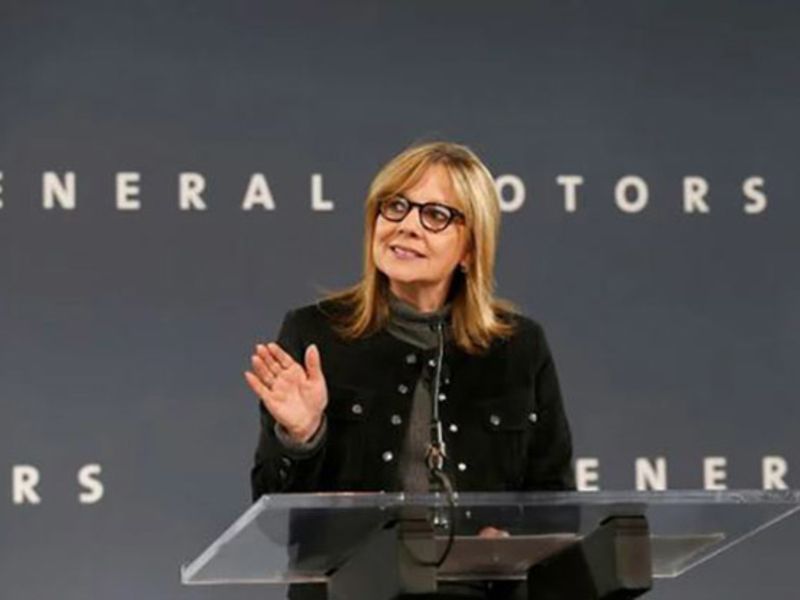
DETROIT — Even if it’s decades before electric vehicles become the dominant form of transportation industrywide, General Motors will continue to take the lead, CEO Mary Barra told reporters Monday.
The company remains fully committed to its EV strategy despite interruptions to product programs and factory schedules, and the economic slowdown caused by the coronavirus pandemic, Barra said during a webcast media briefing organized by the Automotive Press Association.
Barra told Bloomberg News last week that it could be decades before EVs become the primary mode of transportation, but she added Monday that GM will drive the growth of EV production and sales.
Barra is confident that EV sales will gain traction eventually, and especially at GM, “but if you look at the whole portfolio [industrywide] changing over, that tail could be a bit longer,” she said.
The Chevrolet Bolt is GM’s only battery electric option today. But after the automaker previewed the forthcoming electric GMC Hummer during the Super Bowl this year, Barra said customers were excited about its EV plans.
“We need to make sure that the product is great and that people know about it,” Barra said. “We will be making sure we have the right presence and get the right level of information out to customers so they know the vehicles and know what they can do.”
GM has pledged $20 billion for electric and autonomous vehicle programs through 2025. The automaker plans to have 20 EVs globally by 2023 and is converting a Detroit-Hamtramck Assembly plant in Michigan into an EV manufacturing hub with a $3 billion investment. EV production at the assembly plant has remained on track, despite closures related to the pandemic while some updates to internal combustion vehicles were delayed.
The automaker undertook other cost-cutting moves to weather the coronavirus, but Barra said Monday that there isn’t a need for further coronavirus-related cost reductions.
GM also broke ground this year on a battery lab in Ohio to build proprietary Ultium batteries with LG Chem. GM says its battery costs will soon fall below $100 per kilowatt-hour — the threshold widely seen as making EVs competitive with internal-combustion vehicles — and has partnered with Honda to co-develop two Honda EVs. Vans powered by the Ultium batteries could also give GM opportunities on the commercial side. Electrification of commercial vehicles is a” huge opportunity for us,” Barra said.
“We have a steady drumbeat of EVs coming out across segments to appeal to a variety of customers,” Barra said. But GM isn’t giving up on internal combustion vehicles. The automaker will continue to launch internal combustion vehicles in conjunction with EVs, she said.
Barra said GM has a plan to eventually transition some powertrain plants to build EV components, but not all. There will long be a market for internal combustion vehicles, she said.